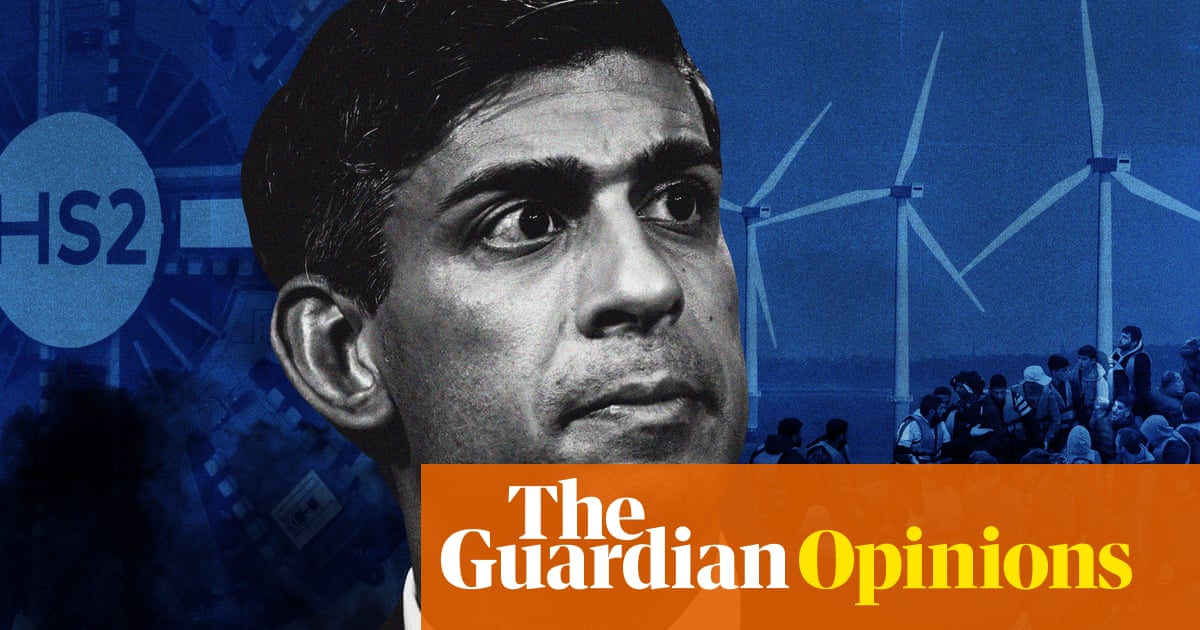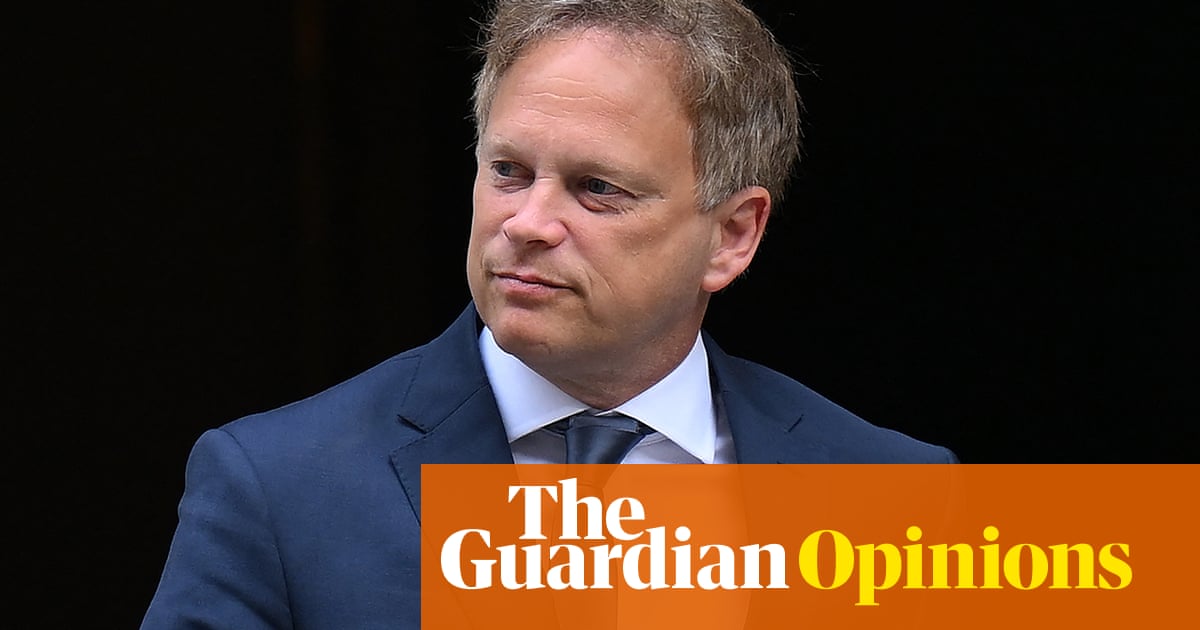
Gaby Hinsliff: Sunak lavished his love on ‘red wall’ voters
Rishi Sunak wanted, he said soulfully, “to be honest” about what was coming. Like the words “let me be clear”, this often indicates a politician keen to be anything but.
So don’t assume this budget was the last word on either repairing the public finances post-pandemic, or the hard choices necessary to tackle the climate crisis. The chancellor confirmed the widespread briefing that he will raise cash from the better-off in the stealthiest possible way, via “fiscal drag” – freezing tax thresholds so that millions are quietly sucked into paying higher income-tax rates, or inheritance tax. He was bolder than expected on corporation tax, which will rise sharply to 25% (although not until 2023).
But he said suspiciously little about what all this means for public spending – and sure enough, the small print suggests a £4bn cut pencilled in for some future date years ahead, with little explanation of where it might fall.
For now, some Treasury love was lavished on areas with critical local elections looming (notably Teesside, a key test of Labour’s ability to make progress in winning back “red wall” voters). With the Office for Budget Responsibility forecasting a swifter bounceback from the pandemic than expected, Sunak still seems to be banking on a growth-led recovery – fuelled by companies spending the cash reserves some have been hoarding ever since the Brexit referendum unleashed four years of chaotic uncertainty.
Yet despite the big numbers, this budget felt oddly thin – partly because the Treasury had already published not just a glossy video of the boss gushing at vaccine scientists, but extensive details of how furlough, universal credit top-ups and other Covid support schemes would be extended. Parliament felt like such an afterthought that next year Sunak will probably just tell us to check out his Insta. But one can’t help feeling the real grit is still to come.
Gaby Hinsliff is a Guardian columnist
Miatta Fahnbulleh: Woefully inadequate for those who are struggling
Wednesday’s budget was designed to sound big but fell short where it mattered most. While there were plenty of attention-grabbing headlines for business, there were little more than crumbs for families on the breadline.
While the chancellor did enough to support our economy in the short term, there wasn’t nearly enough to secure a recovery which puts people in a better position than when they entered the pandemic.
We are all yearning to return to living our lives, but most of us would agree that we cannot simply go back to the way things were, and an economy that was failing so many. On the other side of this pandemic, there are some basic things that we should all expect: a good job, enough food for our children, quality care and a warm home on a healthy planet.
The extension of the furlough scheme in the short term was welcome: analysis by the New Economics Foundation has shown it will protect 90% of the 2 to 3 million jobs at risk by May. But the budget was woefully inadequate in its support for the millions who are struggling to stay afloat on universal credit and those that have been excluded. And an extra £4bn in planned cuts to day-to-day spending each year, on top of £10-12bn a year already set out in last November’s spending review, suggest that the government has learned nothing from the damage done to the country’s resilience by 10 years of austerity.
This is no time to scale back our national ambition. Overcrowded classrooms, inadequate hospital bed numbers and low-grade care must become a thing of the past. A decade of stagnant pay and rising generational inequalities needs to be reversed. And the transition to a zero-carbon future, with millions of new green jobs, must be secured. Without action that can actually deliver, slogans such as “levelling up” will count for little at all.
Miatta Fahnbulleh is chief executive of the New Economics Foundation
Katy Balls: The budget’s real test will be whether it levels up
Katy Balls
When Rishi Sunak stood up at the dispatch box in the socially distanced Commons chamber, the cheers from his party were few and far between. It wasn’t just that the rules meant Tory backbenchers were a reduced presence; it’s that one of the chancellor’s toughest audiences on this budget was sitting on the benches behind him. In the buildup to Wednesday’s announcement, Sunak had come under plenty of flak from former Tory prime ministers and current parliamentary colleagues for various mooted tax rises that, they argued, would kill the recovery. In the end, there were just two difficult pills for his party to swallow: first, the personal tax threshold freeze; and second, a rise in corporation tax to 25% in April 2023 for firms with profits of £50,000 or more.
It’s the latter that is the more controversial. Veteran Tory MPs have already been threatening to rebel on the budget vote – a confidence issue – if necessary. The scale of the hike won’t help matters. “It’s close to Jeremy Corbyn territory,” says one Tory MP – referring to the former Labour leader’s plan to raise it to 26%. However, Sunak ought to be able to win over some previously sceptical MPs with his sweetener of a “super deduction” – allowing businesses to claim 130% of their new machinery as a tax cut. Meanwhile, the announcement of a fuel duty freeze for the 10th successive year, along with an alcohol duty freeze, will calm nerves among the northern red wall intake of Tory MPs.
Sunak used this budget to pitch himself as a pragmatist – balancing fiscal responsibility with a need to stay competitive, stressing that the UK would still have the lowest corporation tax rate in the G7.
He pledged to return to the levelling-up agenda promised after the election, before the pandemic came along. But the landscape has changed – and promises made back in 2019 are now harder to deliver on. The real test of this budget will come in the next few years: in particular, will it usher in the more geographically balanced recovery that Sunak has promised?
Katy Balls is the Spectator’s deputy political editor
Tom Kibasi: The contrast with Labour’s timid demands was striking
Rishi Sunak is no George Osborne: this was not an austerity budget. The chancellor promised to keep spending by extending the furlough scheme to the end of September and expanding support for the newly self-employed, alongside a package of support for businesses including grants, cheap loans, and tax relief. Perhaps most significantly, Sunak announced a new super-deduction for business investment over the next two years, worth some £25bn.
The chancellor has been prepared to continue the colossal expansion in government spending, and to challenge his own party by setting out future tax rises on big business with a rise in corporation tax from 19% to 25% in two years’ time. The contrast with the timid demands set out in Keir Starmer’s speech last month – a recovery bond, retaining the £20 uplift in universal credit (which the chancellor promised to do, albeit temporarily), and no increases in council tax – was striking.
Yet in economics as in politics, the boldest measures are often the safest. Compared with the massive $1.9tn stimulus put forward by the Joe Biden administration in the US, both Labour and the Tories’ plans look rather inadequate. Indeed, a recent proposal for a £190bn stimulus to “boost it like Biden” proposed by the Institute for Public Policy Research thinktank fell on deaf ears. Why take the risk of going too small?
If Labour is to cut through, it will need to have the courage of its convictions. As this budget has shown, the opposition party will make little progress if it continues to fight yesterday’s Tories rather than the opponents in front of them. A government that has done too little has outflanked an opposition that proposes even less.
One of the secrets to the Conservatives’ longevity in power is their seemingly limitless capacity to reinvent themselves. They exist to protect the interests of the privileged, and their primary goal is to retain power. A few extra percentage points on corporation tax or a few extra billion in borrowing to sustain spending are a small price to pay. Sunak has just shown us that. What is Labour’s answer?
Tom Kibasi is a writer and researcher, and a former director of the Institute for Public Policy Research












